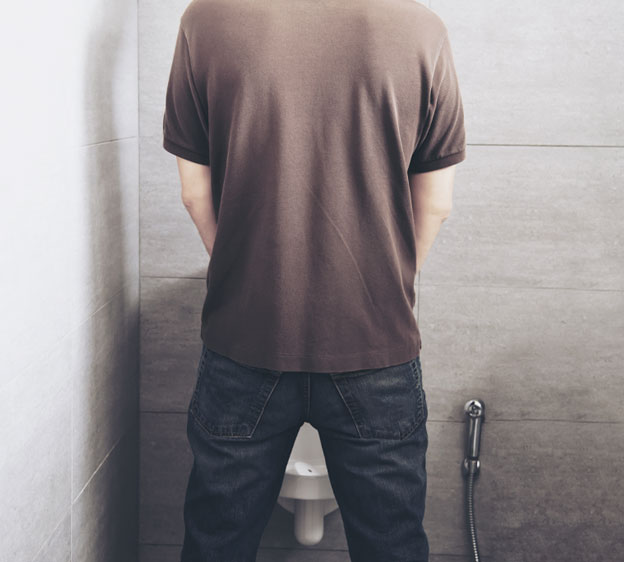
If your urine smells bad, takes on a cloudy appearance or doesn’t flow as quickly as it normally does, you’re likely wondering what’s wrong.
Your kidneys produce urine to get rid of waste products and extra water in your body. Changes in urine smell or color are typically temporary and not a cause for concern, but sometimes, these changes can be signs of health problems.
Why Urine Smells Bad or Sweet
Urine smell can change for a variety of different reasons. Some of those reasons include:
- What you eat. Some people experience a change in smell sometimes known as “asparagus pee” after eating asparagus.
- Dehydration. When you’re healthy and hydrated, your urine usually has a mild or unnoticeable odor. If you are dehydrated, your urine may smell like ammonia.
- Maple syrup urine disease. This genetic disease can cause the amino acids leucine, isoleucine and valine to build up in the blood. People with this condition may have urine that smells like maple syrup.
- Type 2 diabetes. Uncontrolled high blood sugar can cause urine to smell sweet or fruity.
If you notice a foul urine odor while also experiencing a burning sensation, you may have a urinary tract infection (UTI).
Urine That’s Cloudy or Off-Color
Urine color can vary based on your hydration level. Pale yellow urine usually means you’re well hydrated, while dark yellow or cloudy urine may mean you need to drink more water.
A pink or red color may be a sign of blood in your urine, which could result from:
- Kidney infection or injury
- Kidney stones
- Menstruation
- Sexually transmitted diseases (STDs), such as chlamydia and gonorrhea
- Sickle cell anemia
- UTI
Blood can also make your urine appear cloudy. If you experience a fever with blood in your urine, you may want to seek immediate care.
Read More: UTIs vs. Kidney Infections: How to Tell the Difference
Difficult or Slow Urine Flow
“If you have difficulty starting and maintaining urine flow or are experiencing a slow urine flow, you could have urinary retention,” says Nikki Newman, board-certified physician assistant at Beaufort Memorial Lowcountry Medical Group Primary Care. “Urinary retention is most often caused by a blockage or narrowing of your urinary tract.”
A urinary tract can become blocked or narrowed for many reasons, including:
- Constipation
- Enlarged prostate
- Medications, such as antidepressants or antihistamines
- Neurological conditions, such as Parkinson’s disease and Alzheimer’s disease
- Pelvic floor dysfunction
- Pelvic or penis trauma
- STDs
- Tumors, either cancerous or noncancerous
- UTI
- Weak bladder muscles
Read More: Difficulty Urinating and Other Signs of Prostate Problems
A primary care provider can answer other questions you may have about your urine’s smell, color and flow. Find a provider accepting new patients.

